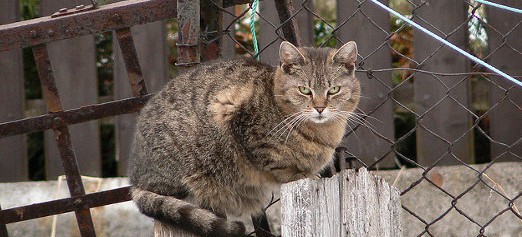
Privacy statement: Your privacy is very important to Us. Our company promises not to disclose your personal information to any external company with out your explicit permission.
The fish-eating components are designed to attract cats and cats because their saliva contributes to keeping the surface of the panel clean and operating at optimum efficiency.
Scientists at the British Institute of Science and Social Sciences have recently announced that they have invented a solar module that is coated with a scent of salmon. Scientists claim that such designs can increase the efficiency of components by 5%.
In the laboratory tests, the researchers covered a specially distributed coating of fish flavor channels on a photovoltaic panel on a small roof. Two cats named Lirpa and Lofo in the experiment were involuntarily attracted by fishy scent, and they were on the surface of the smashed plate for several hours.
Subsequently, the researchers used wooden spoons to knock the pan to scare the cat. The study found that the surface of the components that had been licked by cats was about 25% cleaner than the original, which directly led to a 5% increase in efficiency.
Felix Lickspittle, chief researcher of the research team, spoke to cats for their praise. He said: "The cat's wet, rough tongue cleans dirt and impurities on the surface of the components. In addition, the enzymes left on the surface of the components of the cat can make the components emit an incredibly transparent luster - helping to enlarge the sun's rays. Because there is no food on the surface of the component, it will not harm cats."

The research team stated that lofo demonstrated outstanding value in the initial test of squid aroma components
The research team pointed out that the components that emit the smell of salmon are still in the experimental stage. "After the scent of salmon, we also experimented with components that emit tuna, murine and chicken flavors," added Lickspittle. "However, we do not want components to be too "meaty" to attract any dog. They are not as dexterous as cats, and we do not want to see dogs die."
The researchers believe that they will also look for other possible ways to increase the attractiveness of PV modules to cats. "We have tried to make the sound of sleeping babies sound out of the box. However, experiments have shown that cats only sit there and do not pick up components," said Lickspittle.
“We have also painted bird feathers on the surface of the module in the hope that it will attract cats. However, experiments have shown that once in the effective range, before moving in different directions, Lirpa only quietly approached the components; Lofo Just sitting beside it staring at the component and occasionally threatening to strike the component with its little paw. We think we need a new cat.” (Translator: Krystal)
November 21, 2022
September 29, 2022
August 10, 2024
April 30, 2024
September 29, 2024
November 18, 2023
Bu tedarikçi için e-posta
November 21, 2022
September 29, 2022
August 10, 2024
April 30, 2024
September 29, 2024
November 18, 2023

Privacy statement: Your privacy is very important to Us. Our company promises not to disclose your personal information to any external company with out your explicit permission.

Fill in more information so that we can get in touch with you faster
Privacy statement: Your privacy is very important to Us. Our company promises not to disclose your personal information to any external company with out your explicit permission.